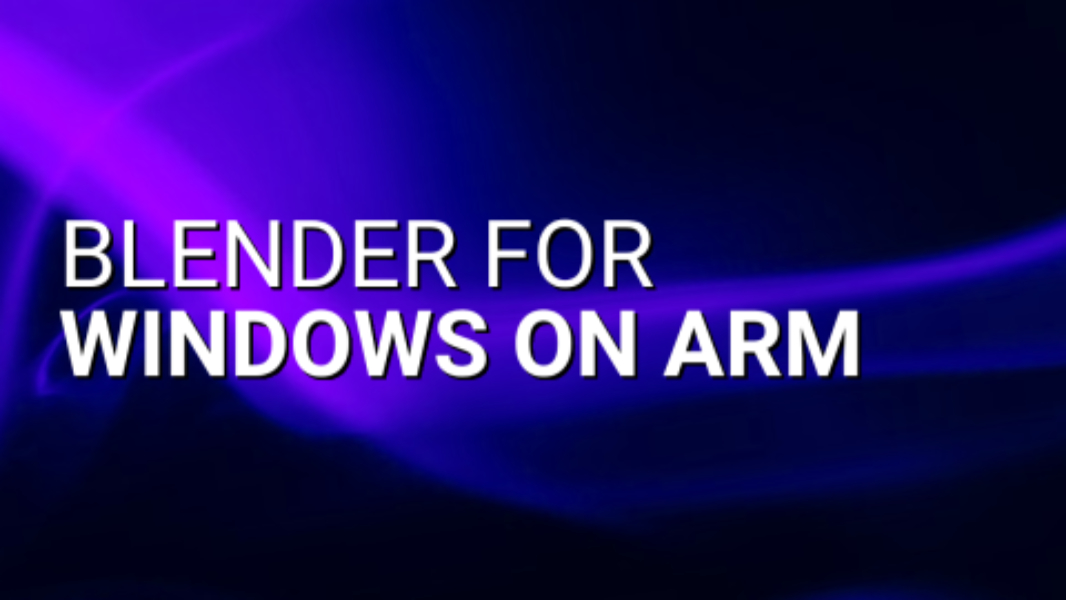
With all the major applications now available natively on Windows 11 on Arm, Qualcomm is working with developers to fill in the gaps. And so now the Blender open source 3D creation app is available natively on the platform, too.
“Over a year ago, thanks to the joint efforts of Microsoft, Linaro, and Qualcomm, the ambitious project of porting Blender to the ARM64 architecture running Windows (WoA) began,” the Blender announcement notes. “With Qualcomm’s significant support as a Patron-level member of the Blender Development Fund, the core development team was able to review and iterate on this project. As a result, Blender can now run on hardware powered by Windows on processors such as the Qualcomm Snapdragon.”
Blender 4.3 was the first to run natively on Windows 11 on Arm, but with the release of Blender 4.5 LTS, things have improved enormously. This release utilizes a native Vulkan graphics backend that supports the Adreno GPU architecture in the Snapdragon X chips, delivering “drastically improved” viewport playback and rendering performance of up to 6x and 4.5x, respectively.
Blender will continue optimizing the app for Windows 11 on Arm, with plans to deliver hardware-accelerated ray tracing for Cycles on Snapdragon X sometime in 2026.
You can download the latest Arm-native version of Blender for Windows from the Blender website. To enable the Vulkan backend, open the app’s preferences and navigate to System and then select this option from the list available there.